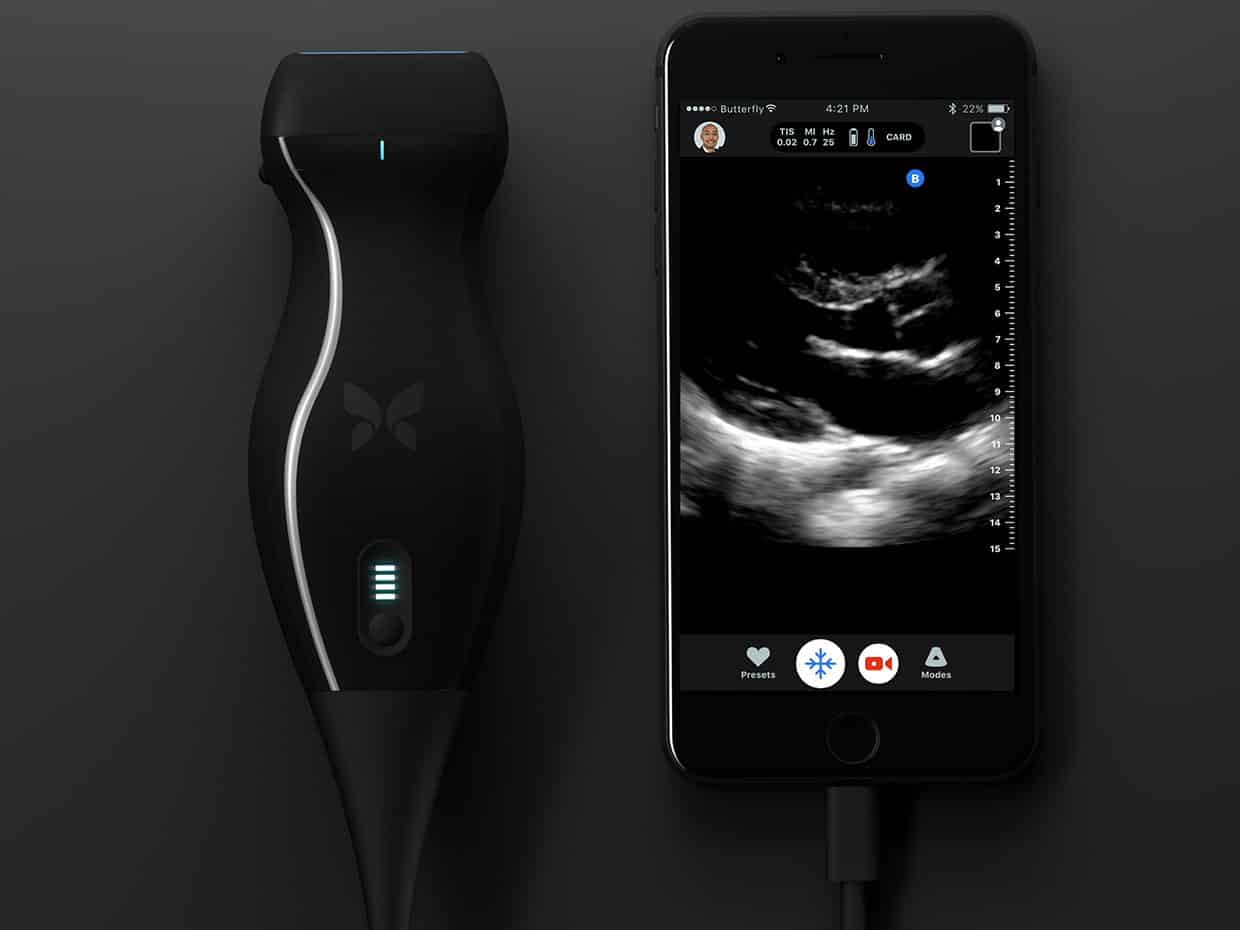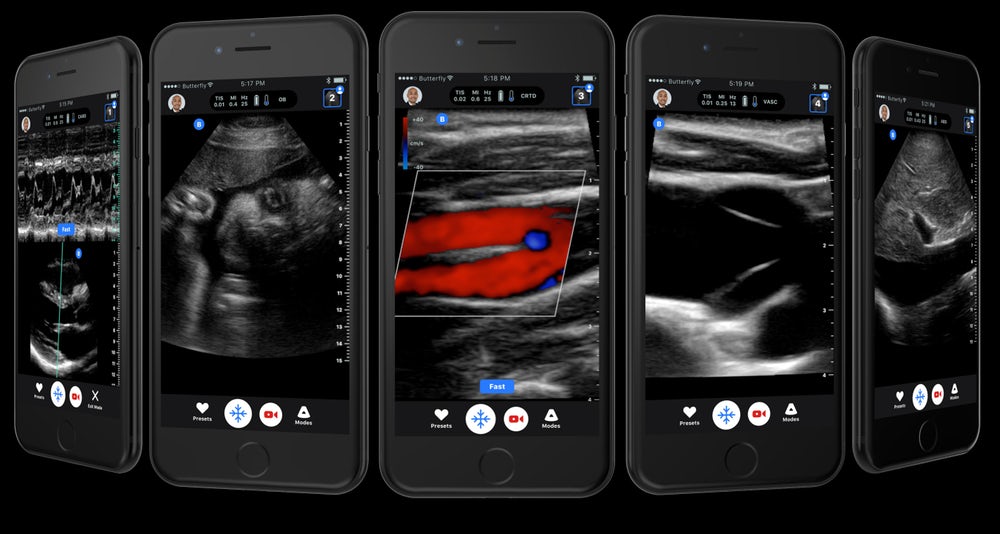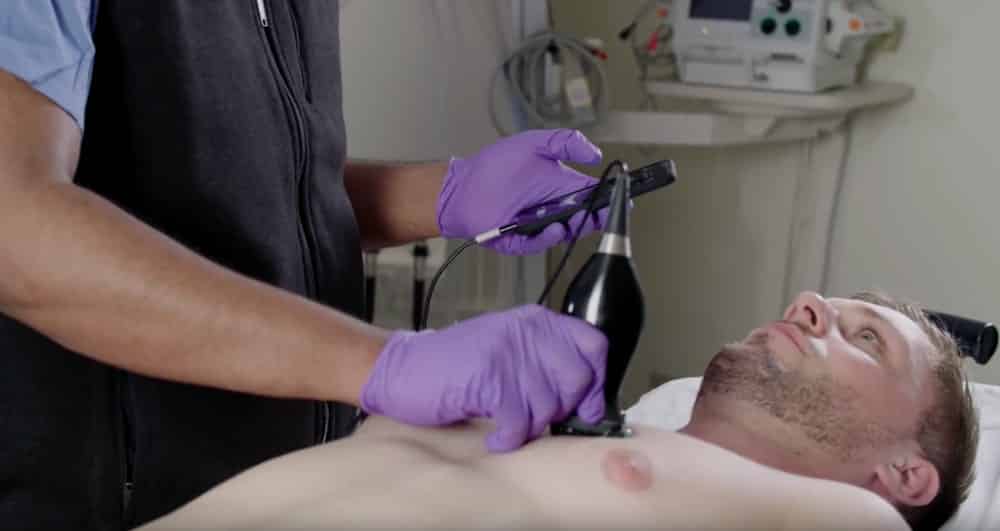Smartphone-Connected Ultrasound-On-a-Chip Greenlit by FDA
“There’s a smartphone app for that” is pretty much a joke punchline nowadays, with our smartphones being utilized for everything from spotting skin cancers to detecting concussions.
Now taking this phenomenon to a whole new level is the Connecticut-based Medical device developer, Butterfly Network Inc., with its handheld, smartphone-based ultrasound device that can help people without medical training diagnose their own illnesses.
The firm has now announced an FDA 510(k) clearance for its Butterfly iQ – the world’s first ‘ultrasound-on-a-chip’ device – with over three of these transducers and 10,000 sensors in a single handheld scanner, allowing for faster, easier, and cheaper ultrasound scanning.
To image the entire body, a traditional ultrasound system requires a large, expensive cart or box which connects to three or more piezoelectric-based transducers, each costing thousands to tens of thousands of dollars. Butterfly’s Ultrasound-on-a-Chip technology combines the capabilities of the typical three probes into a single ultra wide-band, 2D matrix array comprised of thousands of microelectromechanical systems (MEMS).
Jonathan Rothberg, an entrepreneur who prides himself on drastically disrupting the biomedical industry every so often, has typically big claims for his new product.
The Butterfly iQ, a cheap handheld ultrasound tool with AI smarts tucked inside, will 1) revolutionize medical imaging in hospitals and clinics, 2) change the game in global health, and 3) eventually become a consumer product that will be as ubiquitous as the household thermometer, he says.
Rothberg’s startup Butterfly Network has now received FDA clearance for 13 clinical applications, including cardiac scans, fetal and obstetric exams, and musculoskeletal checks. Rather than using a dedicated piece of hardware for the controls and image display, the iQ works with the user’s iPhone. The company says it will start shipping units in 2018 at an initial price of about $2,000.
The company plans to combine the device with artificial-intelligence software with an eye to helping new doctors properly position the probe, collect the right images, and interpret them. By next year, its software could allow users to automatically calculate how much blood a heart is pumping, or detect aortic aneurysms and other cardiac events.
“Offering a unique blend of affordability, diagnostic versatility, and assistive intelligence, Butterfly has the potential to impact human health more profoundly than any diagnostic device since the stethoscope, invented over 200 years ago. At less than $2,000, healthcare providers can purchase an easy-to-use, powerful, whole-body medical imaging system that fits in their pocket,” said Dr. John Martin, Butterfly Network’s Chief Medical Officer. “By removing the barrier of price, I expect Butterfly to ultimately replace the stethoscope in the daily practice of medicine. We can now provide a diagnostic system to address the millions of children that die of pneumonia each year and the hundreds of thousands of women that die in childbirth, and these are just two examples of the impact this technology will have.”
“Just as putting a camera on a semiconductor chip made photography accessible to anyone with a smartphone and putting a computer on a chip-enabled the revolution in personal computing before that, Butterfly’s Ultrasound-on-a-Chip technology enables a low-cost window into the human body, making high-quality diagnostic imaging accessible to anyone. Two-thirds of the world’s population has no access to medical imaging, that’s not ok, and today our team is doing something about it. And they are just getting started,” founder & chair Dr. Jonathan Rothberg said in a prepared release.
“Deep learning and ultrasound imaging are a perfect combination. As physicians use our devices in the field, they help improve the neural network models. The more physicians use Butterfly devices, the better they will get. Improvements to acquiring and interpreting images will ultimately enable less skilled users to reliably extract life-saving insight from ultrasound,” prez Gioel Molinari said in prepared remarks.

























